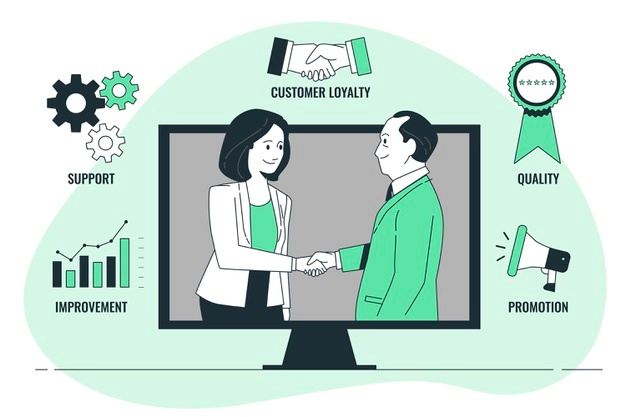Do you feel like there are no limits to the challenges that CRM Performance presents?
CRM Performance Challenges are one of the major reasons CRM projects fail to meet their goals.
Users of CRM software in the mid-market and low-budget markets are often given the task of implementing the software themselves. This makes it easy for them to have difficulties during Performance.
This blog post will discuss nine common problems in CRM Performance for small and medium-sized businesses. We will also provide proven solutions for each of these CRM Performance issues.
7 CRM Challenges and How To Dust Them Off
- How to convince your people to change
- Management Approval
- Handling Data Security
- Removing Favoured Software and Programs
- How to manage the time and cost of CRM implementation
- Technology is worth trusting
- How to manage integrations
CRM software is one the largest software markets worldwide today, and its growth is not slowing.
Let’s now take a look at the nine challenges that CRM performance presents and how we can address them.
1. How to convince your people to change
You might think that CRM implementation will have the most difficult challenges because they are technology-related. You would be wrong if you thought so.
Although technology can seem daunting, your people will provide the greatest support.
Transitioning to a startup with young employees will be easy.
It’s a different story when you have to convince older employees to use CRM solutions and make changes in their habits. Old habits die hard!
Some people are open to innovation and change while others resist it. Although a CRM system may help to break down silos within your organization, simply changing the way everything is done in marketing, sales, and customer service could cause divisions.
Employees may be worried about losing their jobs or lament the loss of human touch at the company. Others may be concerned about how to use the new technology.
Solution
People often struggle to migrate to cloud-based tech solutions because the company doesn’t have a clear strategy.
Managers must foster a culture that encourages learning and digital innovation in order to make this transformation a success.
This must be encouraged from the top. Your company can grow by learning together and helping each other to improve on new CRM functions and processes.
2. Management Approval
Problem
One of the most difficult aspects of CRM implementation is getting approval from the management. Although the sales team might believe that the company would benefit by moving to a fully integrated CRM, the C-suite may need convincing.
They will ultimately have the power to make it happen. However, their concerns about pricing and technology or major disruptions to existing business processes must be addressed first.
Solution
While it is possible for management to overcome resistance within the workforce by instilling digital culture, this tactic won’t immediately work when the workforce must convince management.
Employees must convey the right message to convince senior executives to implement CRM.
Also, it is important to clearly communicate how CRM implementation will bring tangible value to your company in terms of both financial and overall performance.
3 Handling Data Security
Problem
Entrepreneur estimates that the Big Data industry will be worth $77 Billion by 2023.
Your company data is the most valuable asset in your business.
Any attempt to compromise this data will be met with concern. Many people prefer to keep their data local, so moving them all to the cloud can prove to be difficult.
You need to make sure that you are able to trust your system as you move to a new CRM platform.
Customer relationship management can be very challenging. If you lose or misplace customer data, this is understandable.
Solution
It all comes down to selecting the right CRM system.
A cloud-based, unified CRM system is essential to allow data import to be simple and intuitive. This will enable your company to seamlessly transition to the cloud in just a few clicks. It is important to choose a CRM system that your users already love and have used, so that you know you can trust their data.
Data is an integral part of business today. All your employees can tap into its raw potential.
A top CRM platform will make it easy to organize, track, and store data. This will allow everyone to get actionable insights that can be put to use in sales and marketing campaigns, as well as to provide better customer service.
EngageBay is an integrated CRM software that allows all your employees to access the most recent customer and business data. This will allow them to be more effective at cross-channel marketing. It also makes it easier to provide a better customer experience.
4: Leave Favored Software & Programs Behind
Problem
Next on our list of problems in successful CRM implementations is potential disruption to existing business processes.
Even if everyone agrees with your digital culture, it is still a significant feat to actually change how things work.
Baby boomers might be clinging to email while millennials may worry that they will have to give up their favorite project management software.
Although the workforce might be willing to compromise, there may be a perceived risk that no one will get what they want.
Solution
Implementing CRM doesn’t necessarily mean abandoning your current software programs. It offers your company an opportunity to bring them all together.
A unified CRM solution allows you to use multiple tools as integrations. This allows each team to continue using their favorite software with the new CRM system.
EngageBay has over 1,000 integrations available through its partnership to Zapier. This allows you to access a variety of popular enterprise tools such as:
- Asana
- ClickUp
- Google Analytics
- Google Docs
- Google Sheets
- Gmail
- HubSpot
- Mailchimp
- Microsoft Office
- Salesforce
- Shopify
- Slack
- Sumo
- WooCommerce
This versatility allows for seamless integration throughout your organization. This helps to create an environment that encourages close collaboration and strong communication.
This integration will soon result in an increase in key metrics across all areas, including lead generation and engagement, sales, and customer satisfaction.
5. Dealing With the Time and Costs of CRM Implementation
Problem
Digital transformation is not something that happens overnight.
Although it is quite simple, moving data can take some time and a lot more bandwidth, especially if there are a lot of files to move.
People also need to take time to adjust to the new CRM system. Some employees may not be able to handle common CRM problems and challenges on their own for weeks, or even months.
The time you spend on CRM implementation can be used to run your business. There are also additional costs associated with technology, training, maintenance, and support.
Harvard Business Review reported in March 2019 that $1.3 trillion was spent last year on digital transformation, with $900 billion remaining.
It’s possible to wonder if it is worth the effort.
Solution
You can calculate the return on investment (ROI), just like with any major marketing or sales project.
Research shows that CRM implementation has a very high ROI, yielding nearly $9 per $1 and cutting labor costs by almost 40%.
When estimating the cost of a successful CRM implementation, it is important to keep in mind your long-term goals. You can save money by removing your in-house platforms that are rarely used.
You can create a strategy to maximize productivity during the transition by doing your research.
This will help to keep costs down and allow you to conduct data transfers and training in a cost-efficient and time-efficient manner. EngageBay does not charge business owners for migration and loves to help all of our users along the way.
6: Trusting Technology
Problem
Before you can trust your CRM, it is important to make sure that your infrastructure is reliable and scalable to your business’ growth.
It must not only be safe for your data but also fully functional for all your business’s needs.
If it isn’t, your business operations may be severely disrupted. This could have an adverse impact on customer experience and result in lost sales.
This could even damage your brand reputation and hinder your business’ progress. It is one of the most serious CRM issues you can face.
Solution
Do your research before you jump into CRM implementation. To get a complete picture of the CRM, do your research. Ask important questions, such as:
- What CRM can you do to deal with crashes or outages?
- What mobile optimizations does it offer?
- What is the CRM brand’s customer service?
Mobile CRM is an important priority today, so you need to keep this in mind when planning for CRM implementation.
SuperOffice reports that mobile CRM is increasing in popularity and attracting more businesses to adopt it. It is also helping businesses to generate more sales.
It is important to find the best CRM software for your needs. This will give you the foundation you need to grow your company with a successful CRM implementation.
7: Managing Integrations
Problem
While many CRM users are aware of the benefits that a CRM system offers, some CRM users are still unsure about the possible gaps.
Some users worry that CRM implementation won’t offer the integrated functionality they require.
They fear it will cause gaps in marketing, lead generation and ticketing.
Solution
Modern CRM systems integrate with other systems to provide you with a growing productivity toolbox.
These integrations can transform your CRM into a powerful and efficient sales tool.
Think about the integrations that you may need before buying a CRM system. The design of your sales process will play a major role in this decision.
MailChimp integrations, Zapier CRM integrations, and WordPress integrations may be a good choice if you desire seamless integration between sales and marketing.








